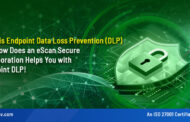With a goal of securing e-commerce, Korean government developed its own encryption technology, SEED in the year 1990. Wherein, the system requires users to produce an authentication which is a digital certificate issued by local authorities, secured by a personal password. In order to make any online transaction, the users will have to submit this digital certificate that proves their identity.
This technology required the user to install an ActiveX plug-in; else the website will not be able to verify the certificate. The problem with ActiveX is that it’s only supported on a single platform: Internet Explorer. ActiveX is clearly inappropriate for other browsers as well as for mobile platforms. This in turn forced users to use Internet Explorer.
Therefore, web developers in South Korean nation not only optimized banking and shopping sites for Internet Explorer, but all other web sites too. However, mandating the technology had many bad consequences that the Financial Supervisory Service (FSS) either merely ignored or couldn’t predict. As a result, for a decade, all Korean Web sites are optimized for Internet Explorer.
Hun Myoung Park, a professor of public management and policy analysis at the International University of Japan, says that ActiveX plug-ins consume computing resources, often conflict with each other and contribute to bad computing practices by teaching users to always click “OK”.
According to a survey carried out on 700 people nationwide, 78.6 percent of respondents said they wanted ActiveX software to be discontinued and replaced by a more up-to-date support system that is not so restrictive. The Federation of Korean Industries (FKI) said 79.1 percent of respondents complained the framework made it very difficult to purchase anything online, with 71.7 percent saying it affected bank transactions, 38 percent had problem signing up for websites and 27 percent had a painful experience while filing their annual tax returns. 84.1 percent of all respondents in the survey wanted a new software in place of ActiveX, so that they can conduct online transactions conveniently without worrying about security issues. In addition to this, Yoo Hwan-ik at the FKI said, “Scrapping the ActiveX requirement could help offset Korea’s international electronic commerce trade deficit.”
However, after a decade, government noticed that it was completely out of sync with the rest of the world to forbid important alternative technologies like iPhones or Android. Eventually, a bylaw was made that ordered government web sites to accommodate minimum three different web browsers and in 2010 they withdrew the compulsion of using ActiveX plug-ins.
On the contrary, if an organization want to discontinue the use of ActiveX plug-ins than it will have to deploy an alternative technology that offers the same level of insurance. However, before deploying such a technology, the organization will have to get it approved from a government appraisal committee. As the appraisal committee is formed recently, it has yet to make a single approval.
According to Kim Kee-chang, founder of the OpenWeb organization dedicated to expanding Web accessibility in Korea, said, “If people are thinking of opening up some service ultimately connected to payment they really have no chance in Korea, they are stuck in the payment stage and even if they could make it in Korea, they’d have little hope in an international market.”
Therefore, even though making a bylaw that removes compulsion on the use of ActiveX plug-ins is there, in practicality there are no other options for secure transactions in South Korea today. A decision taken by the government a decade ago to standardize the use of Internet throughout the nation has locked the whole nation into that platform, and now it looks really hard to escape.




